Post # 69 – Come, Follow Me: Week Four -- We Have Found the Messiah
January 21—27 -- John Chapter One:
Dear Family and Friends
I hope you have been having a great week. We have had a
little bit of snow off and on throughout the week – and of course the wind has
made it blizzard or whiteout conditions for driving at times throughout the
day. We have been quite oblivious to it here in our little classroom though,
until I have apparent picking up their child and they tell me how bad – or good
the weather is outside. The temperatures have been below freezing on most days,
so we have not ventured outside this week at all. I hope that most of you are
healthy and well – I say most because I am sure that someone out there is sick
or feeling sick today – tis the season for colds and flu, you know. I myself
have had a bad cough for a couple of weeks – and my students have been sharing
their colds with each other, off and on for several weeks now😊
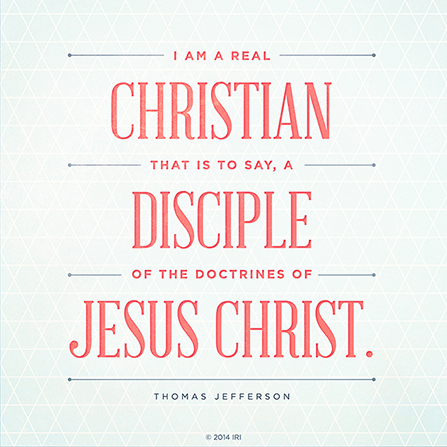
I found this week’s readings quite enlightening – how
about you – what did you think? John was chosen before his birth to prepare the
way for the Savior. He was also chosen to be the one to baptize Jesus. He wore
camel’s hair clothing and ate wild honey and locust (that sounds awful). He had
the Holy Ghost with him before he was born – remember he leaped in his mother’s
womb when he heard Mary’s voice when she went to visit Elisabeth, John’s
mother? I found the Joseph Smith Translation of John chapter one quite
enlightening -- it made the verses so much clearer to me, what do you think?
In his translation given to him by the Lord through the
Holy Ghost – the Lord has made the verses hardest to understand clearer and
more meaningful for me. Here is the first verse – see what you think?
The Gospel According to St John Chapter 1
|
Joseph Smith Translation of John Chapter 1
|
1 aIn the bbeginning was
the Word, and the cWord was
with God, and the dWord was eGod.
|
1 In the beginning was the gospel preached through the
Son. And the gospel was the word, and the word was with the Son, and the Son was with
God, and the Son was of God.
|
You can check out the Joseph Smith Translation of John
Chapter 1 here: https://www.lds.org/scriptures/jst/jst-john/1.html?lang=eng

I have been thinking about the many different ways that
you can study your scriptures; one way is to look up all of the references that
are listed in each verse in the footnotes. Here is an example of the references
given in this verse: a) In -- JST John
1:1–34 (Appendix). b) beginning -- D&C 76:39. TG Jesus
Christ, Firstborn; Jesus Christ, Foreordained. c) Word --TG Jesus
Christ, Messenger of the Covenant; Jesus Christ, Relationships with the Father. d) -- TG Jesus
Christ, Jehovah. e) God -- TG Jesus
Christ, Authority of.
a)
In
|
|
1 In the beginning was the gospel preached through the
Son. And the gospel was the word, and the word was with the Son, and the Son was with
God, and the Son was of God.
|
b)
Beginning
|
D&C 76:39
|
39 For all the rest shall be brought forth by the
resurrection of the dead, through the triumph and
the glory of the Lamb, who was slain, who was in the bosom of the
Father before the
worlds were made.
|
b2) Beginning
|
Jesus
Christ was the First born of our Father in Heaven
|
Jesus Christ, Firstborn
|
b3) Beginning
|
Jesus
Christ was foreordained to be our Savior. Chosen before he was born on the
earth
|
Jesus Christ, Foreordained
|
c1) Word
|
|
Jesus Christ, Messenger of the Covenant
|
c2) Word
|
Jesus
Christ is our Advocate with the Father.
Jesus
Christ is the Only Begotten Son of God.
Jesus
Christ is the Firstborn in of the Father in the flesh
Jesus
Christ
was Foreordained before his birth on the earth
Jesus
Christ is our Mediator between us and our Father in Heaven -- no man cometh unto the
Father, but by me, John 14:6.
Jesus
Christ is the messenger of the covenant-- Lord … shall suddenly come to his temple,
even the messenger of the covenant, Mal. 3:1.
Jesus
Christ, the messenger of the covenant
Jesus
Christ is our Messiah
Jesus
Christ is the S0n 0f man. As well as the Son of God.
|
Jesus Christ, Relationships with the Father
|
c)
Word
|
Jesus
Christ created the world through the direction of our Heavenly Father.
|
|
E) God
|
The
authority of Jesus Christ is given to honorable priesthood holders, this
authority allows them to perform sacred ordinance in Jesus’s name.
|
6 For unto us a child is
born, unto us a son is given; and the government shall be upon his shoulder; and his name shall be
called, Wonderful, Counselor, The Mighty God, The Everlasting Father, The Prince of Peace.Isa. 9:6 (2 Ne. 19:6).
|

One way I have found that helps me when I study the
scriptures is to learn more about the characters in the scriptures that I am
learning about – for example: I read this article about John the Baptist as we
have learned a little bit about him in our readings so far in the New
Testament. The article is titled “John the Baptist: A Burning and a Shining
Light,” and it is by Robert J. Matthews. I found the article in the September
issue of the 1972 Ensign magazine you can find it here: https://lds.org/ensign/1972/09/john-the-baptist-a-burning-and-a-shining-light?lang=eng
Here are a few highlights from his article: John the
Baptist baptized Jesus during his earthly mission. He came from heaven in his
glorified resurrected form to confer the Aaronic Priesthood upon Joseph Smith
and Oliver Cowdery. Isaiah and Malachi
both spoke of John’s mission “hundreds of years before” his time. Lehi and
Nephi knew of John’s activities through “vision centuries before” he was born.
“They said he would prepare the way before and even baptize the Messiah.”
Jesus, Himself, praised John, and said he was “a burning and a shining light,”
He said that among those born of woman, there was not a greater prophet.’ So the things that we can learn about John the
Baptist – that he was considered important enough person that his mission was
made known to prophets and seers hundreds of years before his birth, which was
announced beforehand by an angel. His conception was miraculous. Jesus spoke
very highly of John the Baptist.
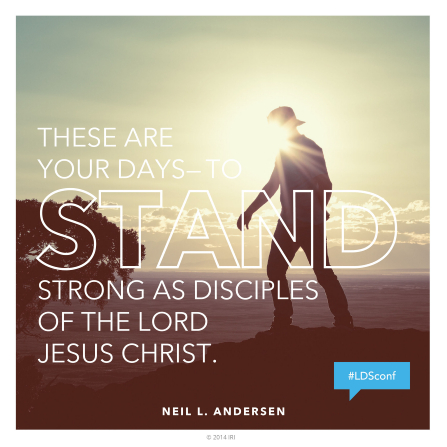
I found this article so
fascinating and such a good read, so informative and I learned so much that I
had to share it with you all. The following are direct quotes from this
article:
In the following discussion some features of his life and
ministry are illustrated as we have come to know him in the scriptures and in
the teachings of the Prophet Joseph Smith.
The earliest allusion to John is found in Isaiah 40:3
(written approximately 700 B.C.): “The voice of him that crieth in the
wilderness, Prepare ye the way of the Lord, make straight in the desert a
highway for our God.”
Matthew, Mark, and Luke each related this prophecy to the
mission of John the Baptist (Matt. 3:1-4l Mark 1:3; and Luke 3:4-6). However,
in the Gospel of John, he himself is quoted assaying that he is the one of whom
Isaiah spake: “Then said they unto him, who art thou? … “He said, I am the
voice of one crying in the wilderness, Make straight the way of the Lord, as
said the prophet Esaias.” (John 1:22-23.)
In Mark 1:2 it is suggested that Malachi also spoke of
John’s mission. The passage referred to is Malachi 3:1, which was written about
400 B.C.: “Behold, I will send my messenger, and he shall prepare the way
before me. …”
An even stronger affirmation that Malachi spoke of John is
found in the records of Matthew and Luke in which Jesus declared that John was
indeed the one whom Malachi had predicted would come:
“For this is he, of whom it is written, Behold, I send my
messenger before thy face, which shall prepare the way before thee.” (att.
11:10; Luke 7:27.)
John is not mentioned by name in the Nephite scriptures,
but his mission is discussed with considerable detail in at least three
instances: 1Nephi 10:7-10, 1 Nephi 11:27, and 2 Nephi 31:4. 8.
A few months before John’s birth into mortality, the angel
Gabriel announced to Zacharias that he (Zacharias) would have a son, that his
name should be John, and that his son’s mission would be to prepare the way
before the Messiah.
When the time arrived for the Messiah to come to earth in
the flesh, it was therefore also time for John, the forerunner, to begin his
earthly mission.
It was indeed a privilege to prepare the way before the
very Son of God, to announce the presence of the Redeemer, and even to baptize
him, but it was also a very difficult task. The covenant people of the Lord,
the Jews among whom Jesus and John would live, had fallen on hard times. The
land of promise was not a free land; it was overrun and dominated by the Roman
Empire, and a foreign king sat upon the throne of Judah – Herod, called the
“Great: and Idumean, despised by Romans and Jews alike. There was no son of
David ruling among the people of the Lord in the Lord’s own land.
Even the people themselves had wandered far from the
precepts of the holy prophets. Jerusalem was bound by priestcraft, intrigue,
self-righteousness, wickedness in high places, and rulers and priests who
served themselves more than they served the people. It was not expected to be
an easy task for John, a mere man, to come among such men and conditions and
prepare the way for the Son of God. Little wonder he is called “A voice crying
in the wilderness.”
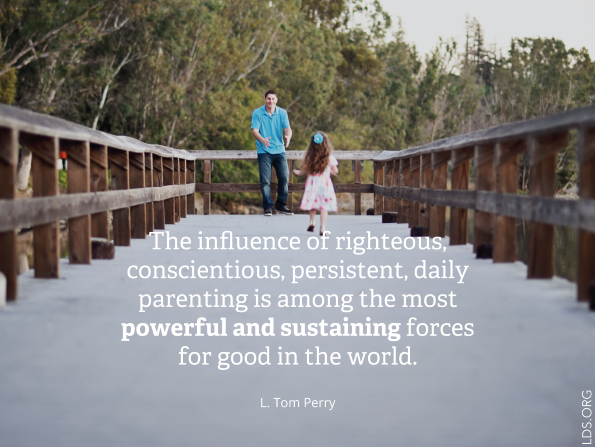
In selecting the mortal lineage through which John would
come, ancient law and procedure had to be fulfilled. He who should labor in
Israel to announce and to identify the great High Priest who was the
long-awaited Messiah must be (according to law) a descendant of Aaron and
legally entitled to act in his priestly office in Israel. The Lord chose
Zacharias, a priest of the family of Aaron, and Elisabeth, his wife, one of the
“daughters of Aaron,” to be the mortal parents to provide the right lineage
necessary to complete the inheritance—to bring about the proper combination of
body and spirit.
Zacharias and Elisabeth were both old and “well stricken
in years,’ and they had no children. While Zacharias “executed the priest’s
office” in the temple, the angel Gabriel appeared to him and said:
“ … Thy prayers is heard, and thy wife Elisabeth shall
bear thee a son, and thou shalt call his name John, And thou shalt have joy and
gladness; and many shall rejoice at his birth.” (Luke 1:13-14.)
The basic fact of the angel’s message is that Zacharias
and Elisabeth were soon to become parents of a choice son. There is, however,
an implication that they had yearned and prayed for children and now the Lord,
having heard their prayer, was giving them a son befitting their faith and
righteousness. To be childless in Israel was viewed as a great misfortune; and
Elisabeth, when she knew she was with child, rejoiced, saying:
“Thus
hath the Lord dealt with me in the days wherein he looked on me, to take away
my reproach among men.” (Luke 1:25.)
Zacharias apparently doubted that he and Elisabeth could
have a child in their old age, even though the angel Gabriel had promised, and
he was struck dumb from that moment, as a sign that the words of the angel were
true.

There is indication also that Zacharias may have become
deaf in addition to being unable to speak. This assumption grows out of a
situation that occurred eight days after the child was born. Some wanted to
call the child Zacharias, after the name of his father, but Elisabeth objected.
“And they made signs to his father, how he would have him
called. “And he asked for a writing table, and wrote, saying, His name is John.
And they marveled all. “And his mouth was opened immediately, and his tongue
loosed, and he spake, and praised God.” (Luke 1:62—64.)
The birth of John was probably well known in Jerusalem.
Zacharias was a prominent man in religious circles around Jerusalem, an
officiating priest in the temple. The people knew of his vision of the angel
and his subsequent affliction. Likewise, when Elizabeth gave birth to a son,
“here neighbours and her cousins heard how the Lord had shewed great mercy upon
her; and they rejoiced with her.” (Luke 1:58.)
Furthermore, when the child was named and the dumb
affliction was removed from Zacharias, many persons knew about it. These things
became frequent items of conversation throughout the area:
“And fear came on all that dwelt round about them: and all
these sayings were noised abroad throughout all the hill country of Judaea.
“And all they that heard them laid them up in their hearts, saying, What manner
of child shall this be! And the hand of the Lord was with him.” (Luke 1:65-66.)
John was born six months earlier than Jesus. Elisabeth,
John’s mother, was also “cousin” or near kinswoman to Mary. When Herod the king
learned of the birth of Jesus, he was troubled and ordered the death of “all
the children that were in Bethlehem, and in all the coasts thereof, from two
years old and under, according to the time which he had diligently inquired of
the wise men.” (Matt. 2:16.)
To escape this slaughter, Joseph was warned in a dream to
take Mary and Jesus into Egypt until Herod was dead. But how did John escape?
He was approximately the same age as Jesus and lived in the approximate area of
Bethlehem. His popularity and the common knowledge that was had of his mission
would surely have placed him under the suspicion of Herod and made him subject
to the king’s envy. The scriptures do not discuss John’s relationship to
Herod’s edict, but the Prophet Joseph Smith enlightened us considerably about
it:
“We will commence with John the Baptist. When Herod’s
edict went forth to destroy young children, John was about six months older
than Jesus, and came under this hellish edict, and Zacharias caused his mother
to take him into the mountains, where he was raised on locusts and wild honey.
When his father refused to disclose his hiding place, and being the officiating
high priest at the Temple that year, was slain by Herod’s order, between the
porch and the altar, as Jesus said.”
This very interesting explanation by the Prophet Joseph
throws light on an otherwise mysterious passage in Matthew 23:35, wherein Jesus
said: “That upon you may come all the righteous blood shed upon the earth from
the blood of righteous Abel unto the blood of Zacharias son of Barrachias, whom
ye slew between the temple and the altar.”

Bible commentators have been at a loss to identify the “Zacharias”
referred to, but from the viewpoint of the Prophet the passage has considerable
historical meaning. Certainly the information given by him on this matter had a
heartwarming effect on our appreciation of old Zacharias, who forfeited his own
life to protect the life of his son, John. This heroic and faithful act
dominated our mental image of him and supersedes the rather negative image that
is engendered by his disbelief of the angel’s words. Zacharias will always be
greater to us when we remember him as a father and a protector even to the
point of death.
The foregoing matter also raises a question as to the
source of John’s priesthood authority. Zacharias was a priest after the order
of Aaron and held true priesthood, as explained by the Prophet Joseph Smith in
several statements. It is plausible that he should ordain John. However, a
passage in the Doctrine and Covenants gives some information about this matter:
“For
he ]John] was baptized while he was yet in his childhood, and was ordained by
the angel of God at the time he was eight days old unto this power, to
overthrow the kingdom of the Jews, and to
make straight the way of the Lord before the face of his people, to prepare
them for the coming of the Lord, in whose hand is given all power.” (D&C
84:28.)
The identity of the angel mentioned in the foregoing
statement is not revealed. Although John’s father, Zacharias, had the Aaronic
Priesthood, he may not have held the proper keys of authority to ordain his son
to this particular calling. The ordination referred to took place when John was
eight days old, which was apparently the same day that he was circumcised and
named. (see Luke 1:59-63.) Zacharias gave his son a blessing by the inspiration
of the Holy Ghost (see Luke 1:67- 79), and this was probably on the same day
that he was ordained and circumcised, but apparently Zacharias did not have the
proper authority to ordain him.
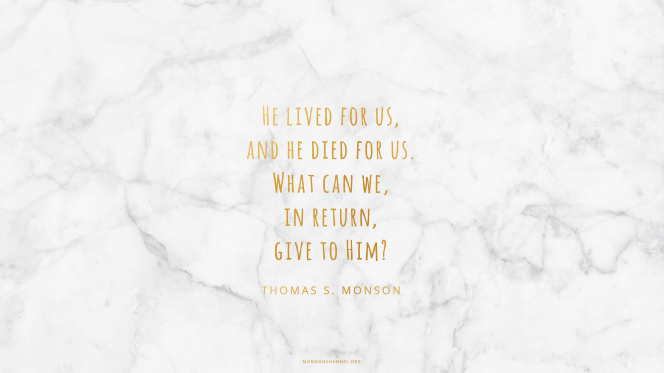
President Joseph Fielding Smith has explained the matter
of John’s ordination as follows: “The reason Zacharias could not ordain John is
because of the fact that John received certain keys of authority which his
father Zacharias did not possess. “Therefore this special authority had to be
conferred by this heavenly messenger who was duly authorized and sent to confer
it. John’s ordination was not merely bestowal of the Aaronic Priesthood, which
his father held, but also the conferring of certain essential powers particular
to the time among which was the authority to overthrow the kingdom of the Jews
and ‘to make straight the way of the Lord.’
Moreover it was to prepare the Jews and other Israelites for the coming
of the son of God. This great authority required a special ordination beyond
thee delegated power that had been given to Zacharias or any other priest who
went before him, so the angel of the Lord was sent to John in his childhood to
confer it.
Even though an angel should ordain John to the priesthood,
it is unlikely that an angel would have actually baptized him in water. Since
Zacharias was very probably no alive on the earth at the time when the baptism
of John took place (it apparently was much later than when John was eight days
old), it is possible that the ordinance was performed by someone mortal who
held the priesthood and is as yet unidentified to us.
Doctrine and Covenants 84:27 seems to support this
possibility with the statement that the Aaronic Priesthood “continued with the
house of Aaron among the children of Israel until John.” At any rate, John was
both ordained and baptized, he grew physically and spiritually, “and was in the
deserts till the time of his shewing unto Israel. …” (Luke 1:80.)
We know very little of John’s youth and Early manhood. The
angel Gabriel told Zacharias that John would “drink neither wine nor strong
drink,” (Luke 1:15.) Matthew says that John’s clothing was of camel’s hair with
“a leathern girdle about his loins,” and that his food “was locusts and wild
honey.” (Matt. 3:4.)
Jesus, in speaking to the multitude concerning John,
commented on the contrast between John’s clothing and the “soft raiment” of
“those who were gorgeously appareled and live delicately … in kings courts.” (Luke
7:25.) he also referred to John’s diet, saying that “John the Baptist came
neither eating bread nor drinking wine.” (Luke 7:33.)
These words of Jesus ay offer a clue to John’s austerity
in food and clothing. Israel was oppressed by tyranny and priestcraft. Perhaps
John’s observance of this caused a desire to be as unlike the proud Pharisee,
the elaborate Sadducee, and those of kings’ courts as possible and might have
influenced his choice of food and clothing.
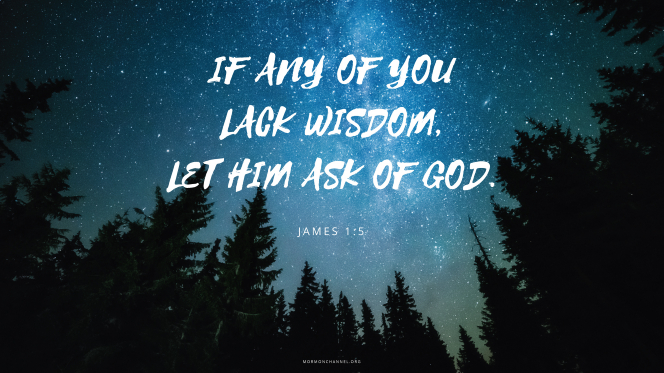
As a preacher John was superb. Multitudes attracted by
both his message and his manner came to hear him. He had the Holy Ghost from
his mother’s womb, and it prepared his mind for great spiritual capacity and
comprehension. He understood the gospel and the meaning of the scriptures. An
analysis of his teaching reveals that his range in subject matter was wide and
profound… \
Not only did John have the Holy Ghost as an aid to
understanding the ancient written scriptures, but also, “the word of God came
to him … in the wilderness” (Luke 3:2), and he had direct revelation pertaining
to baptizing the Messiah.
John’s activities caused considerable excitement, and the
people were in expectation. The Pharisees sent priests and Levites to ask him,
“Who art thou?” and whether he was Elijah or the prophet of whom Moses spoke;
that is, whether he was the Christ. (John 1:9-25.)
John explained that he was none of those who had been mentioned
but was “a voice crying from the wilderness” to prepare the way of the Lamb if
God, and that he had indeed baptized the Lamb of God. Then follows John’s very
explicit statement about the direct revelation he had received concerning baptism
of the Messiah. John explains that he hadn’t actually known or recognized Jesus
beforehand, but that “he that sent me to baptize with water, the same said unto
me, Upon whom thou shalt see the Spirit descending, and remaining on him, the
same is he which baptizeth with the Holy Ghost. “And I saw, and bare record
that this is the Son of God.” (John 1:33-34.)
John’s preparation was complete and sure. He understood
his mission, what he was sent to do, and how he was to do it. John was
extremely effective in his preaching, and he baptized many. The scriptures
indicate that multitudes, even all of Judea, flocked to him, and he had many
disciples. John, the son of Zebedee (later to be known as John the Beloved).
And also Andrew, the brother of Peter, became disciples of John the Baptist,
and it was through him that these two future apostles first learned of and
became acquainted with Jesus. For a short time John and his disciples works
hand in hand with Jesus and his disciples:
“After these things came Jesus and his disciples into the
land of Judaea; and there he tarried with them, and baptized. “And John also
was baptizing in AEnon near to Salim, because there was much water there: and
the came, and were baptized. “For John was not yet cast into prison.” (John
3:22-24.)

John baptized with water only, but he was careful to
explain that Jesus, being greater than he, could baptize not only with water
but also with the Holy Ghost. The Prophet Joseph Smith pointed out that Jesus
came among John’s disciples and gave them the Holy Ghost:
John’s mission was limited to preaching and baptizing; but
what he did was legal; and when Jesus Christ came to any of John’s disciples,
He baptized them with fire and the Holy Ghost.”
The angel Gabriel told Zacharias that John would go forth
in “the spirit and power of Elias … to make ready a people prepared for the
Lord.” (Luke 1:17.) Joseph Smith
explained that the office of Elias is “to prepare the way for greater
revelation of God.”
Although John made many disciples, Jesus made and baptized
even more, and John was always careful to explain that he himself was not the
Messiah, but only came to bear witness of the Messiah. Even so, some of his
followers became concerned when they saw the multitudes follow Jesus, and they
came to John and said: “Rabbi, he that was with thee beyond Jordan, to whom
thou barest witness, behold, the same baptizeth, and all men come to him.”
The greatness of John’s soul and his unselfish loyalty to
the Master are perhaps nowhere better described than in his reply: “a man cam
receive nothing, except it be given him from heaven. “Ye yourselves bear me
witness, that I am not the Christ, but that I am sent before him. “He that hath
the bride is the bridegroom: but the friend of the bridegroom, which standeth and
heareth him, rejoiceth greatly because of the bridegroom’s voice: this my joy
therefore is fulfilled. “He must increase, but I must decrease. (John 3:26
-30.)
Soon after the foregoing events, and with but a short
mission of perhaps no more than eighteen months, John’s activities were
curtailed by his imprisonment at the command of King Herod, son of Herod the
Great. There are somewhat conflicting reports as to the cause of this
imprisonment. Mark reports that the imprisonment was because John had infuriated
Herod’s wife, Herodias, in having testified that it was not lawful for Herod to
have married her, since she was already married to Herod’s brother Philip. (See
Mark 6:17-19.) However, Josephus, the Jewish historian, says that Herod
imprisoned John because he was becoming so popular and commanded such a
following that Herod feared his political power. Although Josephus confirms the
matter of Herod’s unlawful marriage, he does not associate it as a factor in
John’s imprisonment. Whatever the
reasons, the sources agree that John was imprisoned at the command of Herod.
The Bible does not say where the prison was located, but
Josephus asserts that it was in Herod’s castle at Macherus near the eastern
border of the Dead Sea. How long the imprisonment lasted is not stated, but
John was placed in prison sometime during the first year of Jesus’ ministry and
probably remained there about a year. John was not in complete solitary
confinement, for his disciples had at least some freedom to come and go, but it
must have been extremely difficult for this active man of the desert to be
confined to prison. The Inspired Version adds a matter of great interest
relative to John’s imprisonment, and in so doing, it likewise attests to Jesus’
great compassion and his high regard for John. Matthew 4:11 of the Inspired
Version says that “Jesus knew that John was cast into prison’ so he “sent
angels and they came and ministered unto him,” that is, unto John.
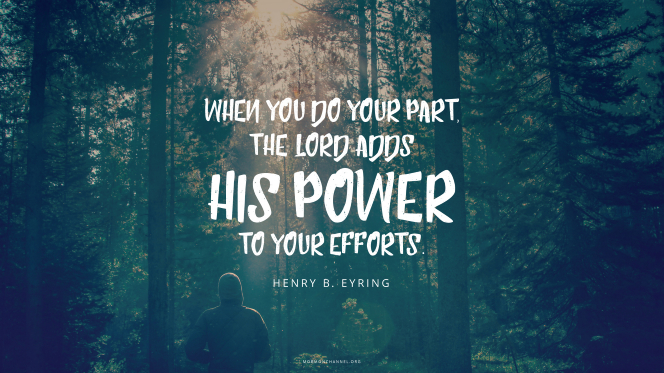
While John was in prison, Jesus, speaking to the
multitude, uttered one of his greatest tributes to John. Among other things he
said that John was “much more than a
prophet,” and further, that ‘among those that are born of women there is
not a greater prophet that John the Baptist: but,” he added, “he that is least
in the kingdom of God is greater than he.” (see Luke 7:24—28.)
The Prophet Joseph Smith explained the meaning of these
words of Jesus as follows: “The question arose from the saying of Jesus—‘Among
those that are born of women there is not a greater prophet than John the
Baptist; but he that is least in the kingdom of God is greater than he.’ How is
it that John was considered one of the greatest prophets? His miracles could
not have constituted his greatness.
“First, H e was
entrusted with a divine mission of preparing the way before the face of the
Lord. Whoever had such a trust committed to him before or since? No man.
‘Secondly. He was entrusted with the important mission,
and it was required at his hands, to baptize the Son of Man. Whoever had the
honor of doing that? Whoever had so great a privilege of beholding the Holy
Ghost descend in the form of a dove, or rather in the sign of the dove, in
witness of that administration? …
Thirdly. John, at that time, was the only legal
administrator in the affairs of the kingdom there was then on the earth, and
holding the keys of power. The Jews had to obey his instructions or be damned,
by their own law; and Christ Himself fulfilled all righteousness in becoming
obedient to the law which he had given to Moses on the ount, and thereby
magnified it and made it honorable, instead of destroying it. The son of
Zacharias wrested the leys, the kingdom, the power the glory from the Jews, by
the holy anointing and decree of heaven, and these three reasons constitute him
the greatest prophet born of woman.
“Second question: -- How was the least in the kingdom of
heaven greater than he? “In reply I asked – Whom did Jesus have reference to as
being the least? Jesus was looked upon as having the least claim in God’s
kingdom, and [seemingly] was least entitled to their credulity as a prophet; as
though He had said – ‘He that is considered the least among you is greater than
John – that is I myself.’”
This was not to be the only time that Jesus praised John.
To the Jewish leaders he said: ‘Ye sent unto John, and he bare witness unto the
truth. … He was a burning and a shining light, and ye were willing for a season
to rejoice in his light.” (John 5:34, 36.) This passage is enlarged in the
Inspired Version with the additional statement of Jesus that John “received not
his testimony of man, but of God, and ye yourselves say that he is a prophet,
therefore ye ought to receive his testimony. … “ (JST, John 5:35.)

The Inspired Version also alters another passage, making
it favorable to John, by taking a very general statement which says: “And
blessed is John, and whosoever shall not be offended in me” (Matt. 11:6). And
particularizing it to read: “And blessed is John, and whosoever shall not be
offended in me.” Jesus sometimes referred to John as an example of
righteousness and extolled his good works before the Jewish rulers. For
instance, after Jesus had driven the money changers from the temple, the chief
priests and elders of the people came to him and said: “By what authority doest
thou these things? And who gave thee this authority?” (Matt. 21:23.)
Jesus bargained with them by means of a question about
John’s authority to baptize: “And Jesus answered and said unto them, I also
will ask you one thing, which if ye tell me, I in like wise will tell you by
what authority I do these things. “The baptism of John, whence was it? From
heaven, or of men? And they reasoned with themselves, saying, if we shall say,
From heaven; he will say unto us, Why did ye not then believe him? “But if we
shall say, of men; we fear the people; for all hold John as a prophet. “And
they answered Jesus, and said, We cannot tell. And he said unto them, Neither
tell I you by what authority I do these things.” (Matt. 21:24—27,)
Since the chief priests refused to acknowledge John’s
divine calling, Jesus was not obligated, according to the terms of the
agreement, to tell them of his own authority. However, he did not leave any
doubt in their minds concerning John’s authority, for he went on to say: “For
John came unto you in the way of righteousness, and ye believed him not: but
the publicans and the harlots believed him: and ye, when ye had seen it,
repented not afterward, that ye might believe him.” (Matt. 21:32.)
The foregoing items attest to the high regard that Jesus
had for John and also for his complete approval of John’s work. Few men can
expect to be more eloquently complimented.
Finally, as recorded in M ark
6:21-29, at the instigation of Herodias and her daughter Salome, Herod caused
that John be slain. An executioner was sent, John was beheaded, and his head
was brought into the presence of Herod, Herodias, and Salome as proof of the
deed. When John’s disciples heard what had taken place, they took up his body
and laid it in a tomb, and informed Jesus.
Thus ended the mortal ministry of one of God’s noblest
men. His earthly mission was completed; he had kept himself unspotted from the
world and had testified against the evils of his day. He had made straight the
highway of his God, announced the presence of the Messiah, baptized the very
Son of God and suffered a martyr’s violent death.
Soon, in perhaps about a year and a half, the Messiah
himself would be slain and his body placed in a tomb. But the Messiah would
have power over the grave, would break the bands of death, and would come forth
out of the tomb with his resurrected, glorified body, no more to be maimed or
bruised. And the Messiah’s resurrection would bring to pass the resurrection of
all men including John.
As recorded in a divine communication to Joseph Smith
(D&C 133:55), John came forth from the tomb at a time immediately following
Jesus’ own resurrection, and John is referred to as being “with Christ in his
resurrection.”
John was a forerunner in the early events of building the
dispensation of the fulness of times, in addition to the building of the
dispensation in which he lived as a mortal. He was a like between the two
dispensations. Eighteen hundred years after his earthly life was over, this
same John, still holding the priesthood and keys of his ministry, descended
from the skies as an angel of God in the glory of his resurrected body, and on
Friday, May 15, 1829, he laid his hands on Joseph Smith and Oliver Cowdery to
confer on them the priesthood of Aaron.

In addition to bearing a spoken testimony of Jesus, John
the Baptist also prepared a written record, which is referred to in D&C
93:6—18. We are informed that “The fulness of John’s record” is still to be
revealed. Elder Orson Pratt discussed the records of John yet to come forth,
and President John Taylor, in his book Mediation
and Atonement, made reference to John the Baptist’s record.
The matter of John the Baptist’s written record has
experienced some confusion because there are two men named John and both
prepared written documents. However, it appears plausible to conclude that John
the Baptist prepared a written record of his ministry from which John the
Apostle later quoted in composing the Gospel of John.
When we recall that John the Apostle was first a disciple
of John the Baptist, it seems certain that he could know of the Baptist’s
written record and might reasonable quote from it. This viewpoint is
strengthened by the lengthy and detailed discussion about John the Baptist in
the first chapter of the Gospel of John, which appears to be in reality an
excerpt from the Baptist’s own written account. This passage begins with these
words: “And this is the record of John, when the Jews sent priests and Levites
from Jerusalem to ask him, Who art thou?” and continues with the Baptist’s own
explanation about his baptism of Jesus. (see John 1:19—34.)
It is worth noting that the Gospel of John contains a
greater number of personal and intimate items about the ministry of John the
Baptist and more of the actual words of his preaching than do the accounts given
by Matthew, Mark, and Luke. Also, the Gospel of John puts John’s words in first
person. This is at least a reflection of the apostle John’s personal
acquaintance with the Baptist and his familiarity with the Baptist’s travels,
preachings, and writings.
In this discussion, we have sketched only a portion of the
many significant events in the colorful ministry of John, the son of Zacharias.
There is much more that is interesting that could be read and enjoyed about
this extraordinary man who contributed significantly to two gospel
dispensations. His outstanding traits appear to be his singleness of purpose,
his total dedication to his special calling, and his complete loyalty to the
Son of God. These traits, coupled with his divine priesthood authority, fearless
disposition, and personal righteousness, make him one of the greatest
characters of the scriptures. He is one of God’s great men.

Well, I have caused this post to be very lengthy. I hope you
have learned as much as I have about John the Baptist. He is such an important
person in the scriptures. Since Jesus spoke so highly of him in the scriptures,
don’t you think it is worth our time and effort to learn more about him – even
if it does take a little more time? Another way to study the scriptures is to read
and study the questions in the lesson. Here are some of the questions for this
chapter that might be good for you to answer after you have read the chapter.
What did John teach about the premortal Christ? Why is it important for us to
know about Christ’s premortal roles? How do the Savior’s creations help you
feel His love? How as the Savior and His gospel provided spiritual light in
your lives? Then read it again looking for the answers to the questions. Be
sure to continue studying from the New Testament – Next week January 28 –
February 3: Matthew 3; Mark 1; Luke 3. Until my next post – everyone, please
make it a great week!! And keep your learning caps on—there is so much more for
us to learn about our Lord, and Savior, Jesus Christ😊
No comments:
Post a Comment